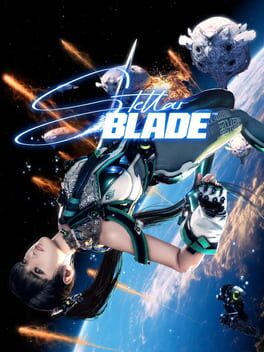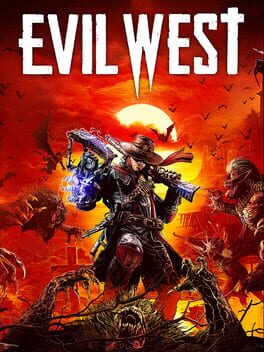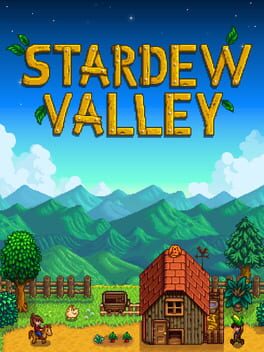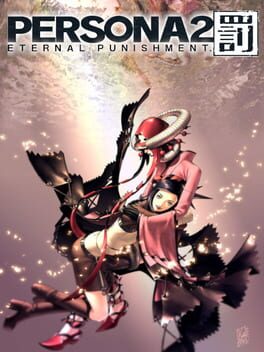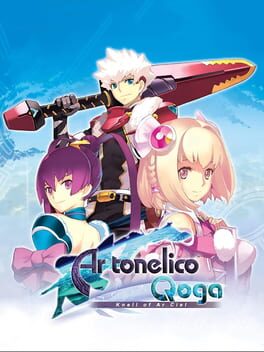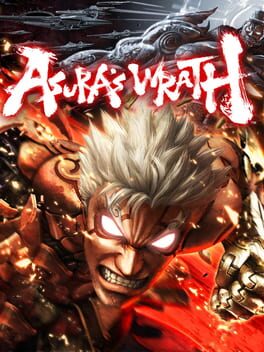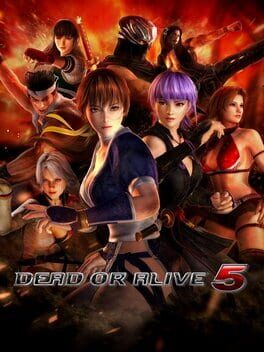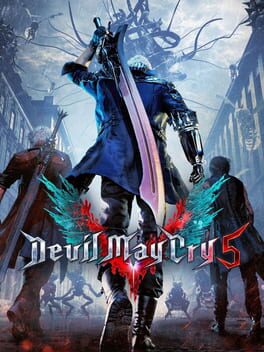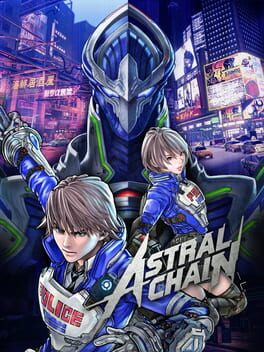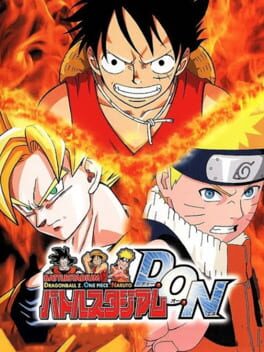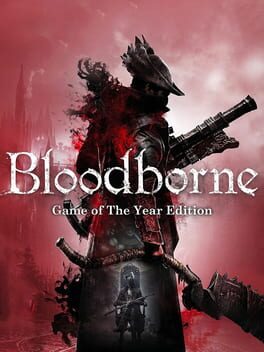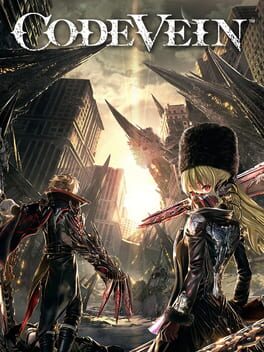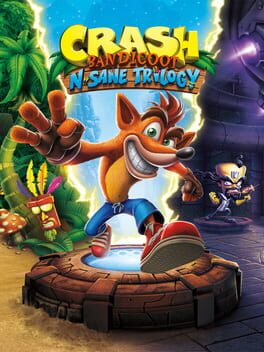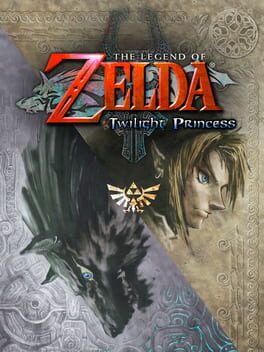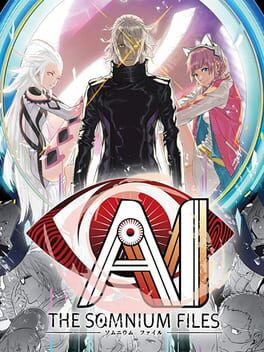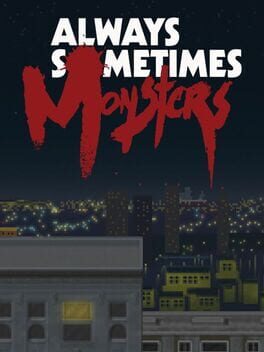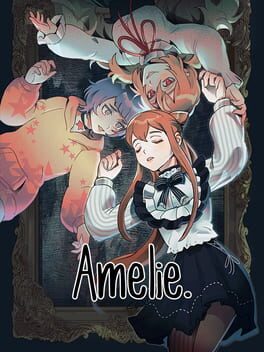Shiroyasha
168 reviews liked by Shiroyasha
Stellar Blade
2024
It’s really a shame that reactions to Stellar Blade are more focused on the fanservice or the coomer reactions. You got one group of people who just focus on the fanservice and hail the game to be the savior of sexualized women in gaming, and then you got the other group who view the game in a negative light because of the first group. And you know what? I can’t even blame them because the first group is really insufferable.
I don't care in the slightest about Stellar Blade having a "sexy" protagonist. I saw a trailer for it once and was immediately interested, because of how fun and unique it looked.
But coomers saw the female Protagonist’s butt and were obnoxious about it ever since. Like come on, it’s bottom of the barrel fanservice you’re going all crazy for. Literally everything I've seen about this game online is people with underaged anime character avatars cream their pants over how this game is "destroying wokeness" or whatever. Nothing against Eve, because she is really pretty and I actually really like her, but she looks like every female character in every korean MMO ever made. It's like people going to war over white bread. Apparently, these guys are now whining about censorship, signing petitions, and making videos of themselves (they look about as you'd expect) about why their cause matters lmao. These pathetic gamerbros will never not be incredibly annoying and cringe to me.
Because Stellar Blade is just so much more. Picture all those apocalyptic gachas and their really great world-building, fantastic atmosphere but really cheap and dull (chibi) gameplay, then amp it up to AAA levels – that's the magic of Stellar Blade.
The environments are beautifully crafted and the atmospheric soundtrack is another aspect I deeply appreciate and thoroughly enjoyed in this game. There's nothing quite like losing yourself in a captivating melody as you journey through vast, lonely landscapes and cities. Just like Nier, Stellar Blade really nailed its soundtrack.
The gameplay is just so much fun and showcases an exceptional level of refinement and polish. Every movement, dodge and parry hit the mark perfectly. The more skills you unlock, the cooler and more fun the combat gets. There's never a dull moment - the gameplay remains consistently exciting and stylish from start to finish.
I found the plot to be really intriguing, and I really enjoyed uncovering plenty of secrets and snippets of lore. But what really surprised me were the sidequests. Sure, some were usual filler content, but most served to make the world feel alive and deepened the lore. Completing them was enjoyable, they never felt like a chore. So good job there.
Oh, and I'm pleasantly surprised by Eve! Initially, I expected her to be the typical "waifu" (ugh, I hate that word), merely there for visual appeal with little personality beyond conforming to generic “anime girl” tropes. Most of these tropes revolve around being “innocent”, "naive" or a "sweet flower girl." But Eve defies those expectations, and I couldn't be happier about it.
Even though Stellar Blade took huge inspiration from Nier and other apocalyptic gacha games, it's still an extremely unique and fun game that everyone should give a chance. Don't listen to the manchildren throwing tantrums or all the buzz about the “fanservice," which is honestly vastly overexaggerated due to some optional skins. Honestly, aside from the optional skins, there are absolutely no horny aspects present in the game.
There are just so many little touches to the point where you can tell the developers really cared about making this game great, and they succeeded. Stellar Blade is simply a beautiful game.
I don't care in the slightest about Stellar Blade having a "sexy" protagonist. I saw a trailer for it once and was immediately interested, because of how fun and unique it looked.
But coomers saw the female Protagonist’s butt and were obnoxious about it ever since. Like come on, it’s bottom of the barrel fanservice you’re going all crazy for. Literally everything I've seen about this game online is people with underaged anime character avatars cream their pants over how this game is "destroying wokeness" or whatever. Nothing against Eve, because she is really pretty and I actually really like her, but she looks like every female character in every korean MMO ever made. It's like people going to war over white bread. Apparently, these guys are now whining about censorship, signing petitions, and making videos of themselves (they look about as you'd expect) about why their cause matters lmao. These pathetic gamerbros will never not be incredibly annoying and cringe to me.
Because Stellar Blade is just so much more. Picture all those apocalyptic gachas and their really great world-building, fantastic atmosphere but really cheap and dull (chibi) gameplay, then amp it up to AAA levels – that's the magic of Stellar Blade.
The environments are beautifully crafted and the atmospheric soundtrack is another aspect I deeply appreciate and thoroughly enjoyed in this game. There's nothing quite like losing yourself in a captivating melody as you journey through vast, lonely landscapes and cities. Just like Nier, Stellar Blade really nailed its soundtrack.
The gameplay is just so much fun and showcases an exceptional level of refinement and polish. Every movement, dodge and parry hit the mark perfectly. The more skills you unlock, the cooler and more fun the combat gets. There's never a dull moment - the gameplay remains consistently exciting and stylish from start to finish.
I found the plot to be really intriguing, and I really enjoyed uncovering plenty of secrets and snippets of lore. But what really surprised me were the sidequests. Sure, some were usual filler content, but most served to make the world feel alive and deepened the lore. Completing them was enjoyable, they never felt like a chore. So good job there.
Oh, and I'm pleasantly surprised by Eve! Initially, I expected her to be the typical "waifu" (ugh, I hate that word), merely there for visual appeal with little personality beyond conforming to generic “anime girl” tropes. Most of these tropes revolve around being “innocent”, "naive" or a "sweet flower girl." But Eve defies those expectations, and I couldn't be happier about it.
Even though Stellar Blade took huge inspiration from Nier and other apocalyptic gacha games, it's still an extremely unique and fun game that everyone should give a chance. Don't listen to the manchildren throwing tantrums or all the buzz about the “fanservice," which is honestly vastly overexaggerated due to some optional skins. Honestly, aside from the optional skins, there are absolutely no horny aspects present in the game.
There are just so many little touches to the point where you can tell the developers really cared about making this game great, and they succeeded. Stellar Blade is simply a beautiful game.
Dragon's Dogma II
2024
12 years on from the strange, incomplete original, DD2 is more of the same, uneasily sitting between the uncompromising Souls series & more conventional narrative ARPGs. At times evoking a desolate offline MMO, DD2 is at its best when out in the wilds, the sun setting at your back & two or more beasts landing on the path ahead, all Arising out of dynamic systems.
The main questline unfortunately does not play to these strengths, with much of Act I confined to the capital & some really dull writing. Fortunately, writing does not maketh a game, and side-quests that take you out into the unreasonably huge map are much more interesting, and really need to be sought out in the crowds and corners of the world. Keeping track of these with the bizarre quest tracker is uneven and obtuse: you’re either reading the landscape and tracing clues or just beating your head against a wall figuring out what the game requires of you.
Dragon’s Dogma 2 is singular, not quite fully realised, a beautifully rendered physics-heavy oddity. The art direction is profoundly generic, but so deceptively understated it at times resembles a Ray Harryhausen film, full of weight, movement and character. DD2 makes you feel like you have friends, albeit stupid friends, who'd throw themselves off a cliff for a view of yonder.
The main questline unfortunately does not play to these strengths, with much of Act I confined to the capital & some really dull writing. Fortunately, writing does not maketh a game, and side-quests that take you out into the unreasonably huge map are much more interesting, and really need to be sought out in the crowds and corners of the world. Keeping track of these with the bizarre quest tracker is uneven and obtuse: you’re either reading the landscape and tracing clues or just beating your head against a wall figuring out what the game requires of you.
Dragon’s Dogma 2 is singular, not quite fully realised, a beautifully rendered physics-heavy oddity. The art direction is profoundly generic, but so deceptively understated it at times resembles a Ray Harryhausen film, full of weight, movement and character. DD2 makes you feel like you have friends, albeit stupid friends, who'd throw themselves off a cliff for a view of yonder.
Dragon's Dogma II
2024
Dragon's Dogma II is basically just more of the first game, but with a bigger budget and more polish and in some ways it's better than the first, but in others it simply is not. If you're a Dragon's Dogma fan you know what you're getting, but if this is your first experience with the series here's a little bit of a run-down.
You play as a chosen one known as the Arisen, you've been marked by a great dragon and it has stolen your heart, now you're on a hunt to fell the beast and reclaim what was stolen from you. The actual story is pretty simplistic and barebones but where the game makes up for that is in the world-building and lore that is fascinatingly detailed and in-depth alongside some solid optional quests that help flesh out the side characters more.
A unique thing Dragon's Dogma is known for is the Pawn system. Pawns are other-worldly beings that only the Arisen can summon and command, Pawns are AI controlled, but function like player controlled avatars and act as your travel companions and party members. Players get to create both their Arisen player avatar and their main Pawn which other players can summon thanks to a shared in-game lobby. While Dragon's Dogma is a completely single-player game, the Pawn system gives a sense of camaraderie comparable to that of a legit co-op game in a way no other game does knowing that the Pawns you're summoning were create by other real people.
The crowning jewel of Dragon's Dogma has always been its combat and much like the first game, combat is what carries Dragon's Dogma II as well. There's 10 different Vocations which act as your various classes that range from a sword and shield user known as a fighter to an archer, a dagger wielding thief or a spell-slinging mage among others making for tons of variety to suit nearly every playstyle. The combat in Dragon's Dogma II is more streamlined thanks to making each vocation only able to utilize one type of weapon and only 4 skills at a time, (I lament the loss of my Mystic Knight vocation and magic classes having far less spells as well) but the game makes up for the lack of complexity with polish because combat feels more weighty and satisfying than ever before and since each vocation only has one weapon type (Other than the newly added Warefarer) that allows for them to feel more fleshed out with deeper move-sets.
Exploration is the other major focus of Dragon's Dogma and it does so in the least handholdy way possible akin to a Souls-like, so much so that I would say roughly 70% of the game is entirely missable from side quests to entire portions of the map especially if you were to just do the main story missions because the game incentivizes you to go out into its world, explore and create your own adventures. The level of freedom the game gives you even extends to quests making for a more authentic RPG experience allowing the player to complete most objectives in more than one way. Exploration itself was a double-edged sword for me because while it was one of my favorite things about the game because when it was good, it was GOOD and finding cool new areas like the Ancient Battleground, Misty Marshes, Mountain Shrine or Dragon's Breath Tower were some highlights of my playthrough but, it was also my least favorite seeing as how the map is 4X bigger than that of the OG Dragon's Dogma, but the amount of actual content in both is roughly the same and it certainly doesn't help that the map doesn't have enough variety and most of what you're going to be exploring is mountain sides and forests. Having such a massive map and limited fast travel just feels like unnecessary padding as far as I'm concerned and I would've preferred a smaller, more condensed map like the first game.
The actual locations and unique dungeons are spread so far and between that a huge part of the map is just empty space to be filled with tedious combat encounters and sometimes they just get too repetitive especially when most of what you're going to be fighting is just goblins and wolves. Even fighting massive creatures like the griffin or cyclops starts to lose its luster later in the game when you've fought them 50 times each, I just think the game could've done with more enemy variety to spice things up and it's disappointing neither the Hydra nor the Cocatrice made a comeback from the first game and special enemies like Medusa or the Sphinx can only be found in one location in the entire game.
I also want to make a special mention to the endgame/post-game content being very lackluster basically turning the game into a pseudo rogue-lite and doing the Majora's Mask 'If you don't compete this in so many days, the game ends' thing. There's only a couple optional bosses and there's not really anything new to explore either despite some new parts of the map opening up, it's just more empty space. The 'Unmoored World' is a cool concept and works well with the lore and narrative, but the execution leaves a lot to be desired and the fact once you finish the game you just immediately get thrown into NG+ kinda sucks too.
Despite it's lack of enemy variety, slightly empty world at times and rushed 3rd act, Dragon's Dogma II more than makes up for its flaws by being a game with a fun and polished combat system that has plenty of variety and depth to suit all kinds of playstyles, tons of small details to really immerse you into its world, a fantastic sense of freedom that let's you play however you want and a truly top notch sense of adventure and exploration at times. Dragon's Dogma II much like its predecessor is a very flawed game, but it's also a great one with tons of undeniable heart and soul behind it and is easily one of the best open-world RPGs in years right alongside Elden Ring and the Witcher 3.
You play as a chosen one known as the Arisen, you've been marked by a great dragon and it has stolen your heart, now you're on a hunt to fell the beast and reclaim what was stolen from you. The actual story is pretty simplistic and barebones but where the game makes up for that is in the world-building and lore that is fascinatingly detailed and in-depth alongside some solid optional quests that help flesh out the side characters more.
A unique thing Dragon's Dogma is known for is the Pawn system. Pawns are other-worldly beings that only the Arisen can summon and command, Pawns are AI controlled, but function like player controlled avatars and act as your travel companions and party members. Players get to create both their Arisen player avatar and their main Pawn which other players can summon thanks to a shared in-game lobby. While Dragon's Dogma is a completely single-player game, the Pawn system gives a sense of camaraderie comparable to that of a legit co-op game in a way no other game does knowing that the Pawns you're summoning were create by other real people.
The crowning jewel of Dragon's Dogma has always been its combat and much like the first game, combat is what carries Dragon's Dogma II as well. There's 10 different Vocations which act as your various classes that range from a sword and shield user known as a fighter to an archer, a dagger wielding thief or a spell-slinging mage among others making for tons of variety to suit nearly every playstyle. The combat in Dragon's Dogma II is more streamlined thanks to making each vocation only able to utilize one type of weapon and only 4 skills at a time, (I lament the loss of my Mystic Knight vocation and magic classes having far less spells as well) but the game makes up for the lack of complexity with polish because combat feels more weighty and satisfying than ever before and since each vocation only has one weapon type (Other than the newly added Warefarer) that allows for them to feel more fleshed out with deeper move-sets.
Exploration is the other major focus of Dragon's Dogma and it does so in the least handholdy way possible akin to a Souls-like, so much so that I would say roughly 70% of the game is entirely missable from side quests to entire portions of the map especially if you were to just do the main story missions because the game incentivizes you to go out into its world, explore and create your own adventures. The level of freedom the game gives you even extends to quests making for a more authentic RPG experience allowing the player to complete most objectives in more than one way. Exploration itself was a double-edged sword for me because while it was one of my favorite things about the game because when it was good, it was GOOD and finding cool new areas like the Ancient Battleground, Misty Marshes, Mountain Shrine or Dragon's Breath Tower were some highlights of my playthrough but, it was also my least favorite seeing as how the map is 4X bigger than that of the OG Dragon's Dogma, but the amount of actual content in both is roughly the same and it certainly doesn't help that the map doesn't have enough variety and most of what you're going to be exploring is mountain sides and forests. Having such a massive map and limited fast travel just feels like unnecessary padding as far as I'm concerned and I would've preferred a smaller, more condensed map like the first game.
The actual locations and unique dungeons are spread so far and between that a huge part of the map is just empty space to be filled with tedious combat encounters and sometimes they just get too repetitive especially when most of what you're going to be fighting is just goblins and wolves. Even fighting massive creatures like the griffin or cyclops starts to lose its luster later in the game when you've fought them 50 times each, I just think the game could've done with more enemy variety to spice things up and it's disappointing neither the Hydra nor the Cocatrice made a comeback from the first game and special enemies like Medusa or the Sphinx can only be found in one location in the entire game.
I also want to make a special mention to the endgame/post-game content being very lackluster basically turning the game into a pseudo rogue-lite and doing the Majora's Mask 'If you don't compete this in so many days, the game ends' thing. There's only a couple optional bosses and there's not really anything new to explore either despite some new parts of the map opening up, it's just more empty space. The 'Unmoored World' is a cool concept and works well with the lore and narrative, but the execution leaves a lot to be desired and the fact once you finish the game you just immediately get thrown into NG+ kinda sucks too.
Despite it's lack of enemy variety, slightly empty world at times and rushed 3rd act, Dragon's Dogma II more than makes up for its flaws by being a game with a fun and polished combat system that has plenty of variety and depth to suit all kinds of playstyles, tons of small details to really immerse you into its world, a fantastic sense of freedom that let's you play however you want and a truly top notch sense of adventure and exploration at times. Dragon's Dogma II much like its predecessor is a very flawed game, but it's also a great one with tons of undeniable heart and soul behind it and is easily one of the best open-world RPGs in years right alongside Elden Ring and the Witcher 3.
Evil West
2022
Evil West
2022
Evil West
2022
Above all else, Evil West is a video game ass video game and that's what I love about it.
The marketing knows this too, it has a trailer featuring goddamn Danny Trejo where it boasts not having lootboxes and making fun of the absurd monetization of games. "I just want to play a game!" he proclaims. If you're beyond a casual consumer (which I assume is the case if you're using this site) you'd find this trailer a bit cringe. It's basically just yelling that its a single player game without a bunch of microtransactions (ignoring the fact it has a pre order bonus skin lol) which yknow, isn't really all that uncommon. But there's something that makes you just wanna vigorously shout "Hell yeah" about that statement and well goddamn Evil West sure is a game.
Saying something "sure is" a game or a movie is usually used as a bit of an insult but for Evil West it is not only a true descriptor but its a bit of a refreshing one. You're just a badass cowboy with electric gauntlets that rips vampires and werewolves in half. There are upgrades and perks, which may be a bit of a mandatory and exhausted system these days, but they only enhance the gameplay and add on to the glorious variety this game has to offer. For most of the game there's constantly new mechanics thrown in. It's entirely designed to make the game more fun and thats what Evil West excels at, being fun. There is an argument to make that the game is a bit simplistic. As many others point out its reminiscent of an older gen title. Non interconnected levels, gruff badass protag and a silly story. Looking at it objectively you can sum up the game as combat arena, slight exploration, combat arena, slight exploration, small puzzle, combat arena, cutscene and so on. But you can really boil any game down to something like that and dismissing Evil West because of that is denying just how fun and cool it is. Maybe its not anything new but it doesn't need to be to be a fantastic time on its own. Hell, even the cover is a form of the "generic cool guy with a gun" but the way its presented and the art style just makes it look sick as fuck.
Throughout Evil West, you'll face a lot of repeat but unique enemies throughout with an occasional new one thrown into the mix. But it's the way enemies are thrown in together and the badass arsenal you're given that still make it so every fight feels different. I was never left with a feeling of boredom or that it was repetitive. It's hella challenging too. I played the whole game on normal. Usually I find games aren't balanced well but Evil West I thought was the perfect level for me. So many of the fights toss a huge amount of tough enemies at you. I was constantly audibly saying "Jesus Christ" or "Fucking hell" at the constant bullshit this game gives you to deal with. But because of how well this game is done I was never left feeling defeated at the constant deaths or like that it was too impossible to win. The only part of this combat I don't like are the suicide bomb enemies. They do cause you to change your play style up a bit but in every game they're put in they're more of a nuisance than a meaningful feature. There's only a few actual boss fights but all of these are quite fun as well, except maybe for The Parasite and thats only because it featured a bunch of the suicide dudes. I nervously laughed at the final bosses transformation. Fighting it, watching some of its surprisingly creepy animations and getting my ass kicked but still killing the fuck out of it in the end was when I knew for sure that this game had succeeded in everything it set out to do.
Now that i've beaten in the fact that the gameplay is super fun (without actually spoiling the mechanics) let's talk about the rest of Evil West. Firstly I want to note that the game gives you an arachnophobia warning (and the option to turn off spiders) at the start which I appreciate. As someone who is deathly scared of them but also didn't want to lessen the overall experience I didnt use this option, and fuck are there a shitload of spiders lmao. Its just a nice little bit of accessibility that I think deserved its own bit of praise. Onto the story, I don't have anything bad to say about it. It's obviously not the selling point. I do honestly wish it was a bit more over the top but I was curious in the direction and it was enjoyable. The ending is slightly abrupt but I still found it to be satisfying. Graphically Evil West isn't the best looking but something I very much appreciated was how much visual variety the levels had. Almost all of them had their own unique setting, color and feel to them. Lots of unique locations is one of the things a game can do to earn a spot in my heart and I was really happy that Evil West committed to this. One thing stopping me from giving it a full 90 is that it was a bit buggy. it was nothing game breaking. The basement of your main base has a lighting glitch, there were two instances where I got stuck in the floor during combat and had to restart. And there were a few audio glitches where just this really loud annoying sound would loop. This was all kinda a pain in the ass when it happened but everything was fixable with a simple restarting checkpoint or death. Playing on performance mode I only ever had one lag spike (that happened every time i got to this section either after death or when replaying for a trophy) was when three big bat demons spawn simultaneously. Otherwise it was never choppy or anything of the such. Another thing worth mentioning isnt a bug but a little silly and definitely a product of budget. When you're at your home base and you walk by an npc they will talk but their mouth wont move or anything. You spend such little time here that it doesnt matter but I thought it was funny enough to share.
That's kinda all I've got to say about Evil West. I really do like this game. In a year where i've gotten lots of games on launch that ended up pretty disappointing, It was nice to play a game I expected very little of that ended up being a surprisingly good time. This year has taught me a lot about both how lame critics are and how terrible I am with money.
Thanks for reading y'all <3
More stuff is on the way.
Nancymeter - 88/100
Trophy Completion - 56% (18/30)
Time Played - 15 hours 12 minutes
Game Completion #150 of 2022
Game Completion #4 of December
The marketing knows this too, it has a trailer featuring goddamn Danny Trejo where it boasts not having lootboxes and making fun of the absurd monetization of games. "I just want to play a game!" he proclaims. If you're beyond a casual consumer (which I assume is the case if you're using this site) you'd find this trailer a bit cringe. It's basically just yelling that its a single player game without a bunch of microtransactions (ignoring the fact it has a pre order bonus skin lol) which yknow, isn't really all that uncommon. But there's something that makes you just wanna vigorously shout "Hell yeah" about that statement and well goddamn Evil West sure is a game.
Saying something "sure is" a game or a movie is usually used as a bit of an insult but for Evil West it is not only a true descriptor but its a bit of a refreshing one. You're just a badass cowboy with electric gauntlets that rips vampires and werewolves in half. There are upgrades and perks, which may be a bit of a mandatory and exhausted system these days, but they only enhance the gameplay and add on to the glorious variety this game has to offer. For most of the game there's constantly new mechanics thrown in. It's entirely designed to make the game more fun and thats what Evil West excels at, being fun. There is an argument to make that the game is a bit simplistic. As many others point out its reminiscent of an older gen title. Non interconnected levels, gruff badass protag and a silly story. Looking at it objectively you can sum up the game as combat arena, slight exploration, combat arena, slight exploration, small puzzle, combat arena, cutscene and so on. But you can really boil any game down to something like that and dismissing Evil West because of that is denying just how fun and cool it is. Maybe its not anything new but it doesn't need to be to be a fantastic time on its own. Hell, even the cover is a form of the "generic cool guy with a gun" but the way its presented and the art style just makes it look sick as fuck.
Throughout Evil West, you'll face a lot of repeat but unique enemies throughout with an occasional new one thrown into the mix. But it's the way enemies are thrown in together and the badass arsenal you're given that still make it so every fight feels different. I was never left with a feeling of boredom or that it was repetitive. It's hella challenging too. I played the whole game on normal. Usually I find games aren't balanced well but Evil West I thought was the perfect level for me. So many of the fights toss a huge amount of tough enemies at you. I was constantly audibly saying "Jesus Christ" or "Fucking hell" at the constant bullshit this game gives you to deal with. But because of how well this game is done I was never left feeling defeated at the constant deaths or like that it was too impossible to win. The only part of this combat I don't like are the suicide bomb enemies. They do cause you to change your play style up a bit but in every game they're put in they're more of a nuisance than a meaningful feature. There's only a few actual boss fights but all of these are quite fun as well, except maybe for The Parasite and thats only because it featured a bunch of the suicide dudes. I nervously laughed at the final bosses transformation. Fighting it, watching some of its surprisingly creepy animations and getting my ass kicked but still killing the fuck out of it in the end was when I knew for sure that this game had succeeded in everything it set out to do.
Now that i've beaten in the fact that the gameplay is super fun (without actually spoiling the mechanics) let's talk about the rest of Evil West. Firstly I want to note that the game gives you an arachnophobia warning (and the option to turn off spiders) at the start which I appreciate. As someone who is deathly scared of them but also didn't want to lessen the overall experience I didnt use this option, and fuck are there a shitload of spiders lmao. Its just a nice little bit of accessibility that I think deserved its own bit of praise. Onto the story, I don't have anything bad to say about it. It's obviously not the selling point. I do honestly wish it was a bit more over the top but I was curious in the direction and it was enjoyable. The ending is slightly abrupt but I still found it to be satisfying. Graphically Evil West isn't the best looking but something I very much appreciated was how much visual variety the levels had. Almost all of them had their own unique setting, color and feel to them. Lots of unique locations is one of the things a game can do to earn a spot in my heart and I was really happy that Evil West committed to this. One thing stopping me from giving it a full 90 is that it was a bit buggy. it was nothing game breaking. The basement of your main base has a lighting glitch, there were two instances where I got stuck in the floor during combat and had to restart. And there were a few audio glitches where just this really loud annoying sound would loop. This was all kinda a pain in the ass when it happened but everything was fixable with a simple restarting checkpoint or death. Playing on performance mode I only ever had one lag spike (that happened every time i got to this section either after death or when replaying for a trophy) was when three big bat demons spawn simultaneously. Otherwise it was never choppy or anything of the such. Another thing worth mentioning isnt a bug but a little silly and definitely a product of budget. When you're at your home base and you walk by an npc they will talk but their mouth wont move or anything. You spend such little time here that it doesnt matter but I thought it was funny enough to share.
That's kinda all I've got to say about Evil West. I really do like this game. In a year where i've gotten lots of games on launch that ended up pretty disappointing, It was nice to play a game I expected very little of that ended up being a surprisingly good time. This year has taught me a lot about both how lame critics are and how terrible I am with money.
Thanks for reading y'all <3
More stuff is on the way.
Nancymeter - 88/100
Trophy Completion - 56% (18/30)
Time Played - 15 hours 12 minutes
Game Completion #150 of 2022
Game Completion #4 of December
Stardew Valley
2016
Stardew Valley feels like coming home.
I can't remember which playthrough I'm on, which is a rarity for me. I've revisited childhood favorites like Zelda and Mario countless times, cherishing each experience. However, as an adult, this happens less frequently. Maybe it's because modern games don't resonate with me as deeply, or maybe my gaming habits have simply changed over time. Yet, whenever I boot up Stardew Valley, it hits all the right notes. Whether I've talked with the residents of Pelican Town dozens of times or played through its events repeatedly, the game retains its magical allure. It feels like a nostalgic return to childhood gaming, a comforting experience I can enjoy every time of the year.
What's truly remarkable is the developer's commitment to continually expanding the game with substantial updates and expansions, all provided for free. Stardew Valley brims with passion and love. Despite its status as one of the most successful indie games of all time, the developer continues to pour his heart into it, enriching the experience for players. I deeply respect and appreciate this dedication, which unfortunately is no longer a given in today's gaming industry.
I could honestly ramble endlessly about this masterpiece of a game. Nearly a decade after my first playthrough, it still holds a special place in my heart and it probably always will.
I can't remember which playthrough I'm on, which is a rarity for me. I've revisited childhood favorites like Zelda and Mario countless times, cherishing each experience. However, as an adult, this happens less frequently. Maybe it's because modern games don't resonate with me as deeply, or maybe my gaming habits have simply changed over time. Yet, whenever I boot up Stardew Valley, it hits all the right notes. Whether I've talked with the residents of Pelican Town dozens of times or played through its events repeatedly, the game retains its magical allure. It feels like a nostalgic return to childhood gaming, a comforting experience I can enjoy every time of the year.
What's truly remarkable is the developer's commitment to continually expanding the game with substantial updates and expansions, all provided for free. Stardew Valley brims with passion and love. Despite its status as one of the most successful indie games of all time, the developer continues to pour his heart into it, enriching the experience for players. I deeply respect and appreciate this dedication, which unfortunately is no longer a given in today's gaming industry.
I could honestly ramble endlessly about this masterpiece of a game. Nearly a decade after my first playthrough, it still holds a special place in my heart and it probably always will.
Persona will never be this great again.
Persona 2: Eternal Punishment is justifiably hailed as a classic for its gripping story, unique atmosphere, and memorable characters who are not constrained by the typical student roles found in many JRPGs and later entries in the Persona series.
Just like P1 and P2:IS, the vibe and atmosphere presented in this game are immaculate with its gritty urban setting and eerie supernatural elements. Eternal Punishment delves into mature themes the series never really has since, at least not in a way like EP did. As a sucker for old-school and adult characters, the stylized character designs not only reflect the era in which the game was created but also contribute significantly to the overall atmosphere and tone. It's a rarity in JRPGs and anime these days, which is a shame because I believe these mediums could benefit greatly from more variety.
However, one aspect that really disappointed me was Maya's sudden role as a silent protagonist. It's an annoying trope all too common in JRPGs and in a game with such rich character development, Maya's silence felt like a missed opportunity for further exploration of her character. I've never really been a big fan of silent protagonists to begin with, but this trend never fails to annoy me. I get that silent protagonists are popular in JRPGS, but Maya being one in a story and character-driven game like EP felt like a huge mistake.
Despite this, the story of Persona 2: Eternal Punishment hooked me from the very beginning. Just like its predecessor, its intricate plot weaves together supernatural elements with psychological depth, creating a narrative that kept me engaged throughout the whole thing.
P1 and P2 are, without a doubt, the best Persona games Atlus has ever cooked up, despite their clunky and dated gameplay. If you're a Persona fan, you will be doing yourself a disservice by not trying out these amazing games. But what made me really love and appreciate these games, aside from the great characters and stories, are the atmosphere and vibes that only retro games can truly emphasize.
Persona 2: Eternal Punishment is justifiably hailed as a classic for its gripping story, unique atmosphere, and memorable characters who are not constrained by the typical student roles found in many JRPGs and later entries in the Persona series.
Just like P1 and P2:IS, the vibe and atmosphere presented in this game are immaculate with its gritty urban setting and eerie supernatural elements. Eternal Punishment delves into mature themes the series never really has since, at least not in a way like EP did. As a sucker for old-school and adult characters, the stylized character designs not only reflect the era in which the game was created but also contribute significantly to the overall atmosphere and tone. It's a rarity in JRPGs and anime these days, which is a shame because I believe these mediums could benefit greatly from more variety.
However, one aspect that really disappointed me was Maya's sudden role as a silent protagonist. It's an annoying trope all too common in JRPGs and in a game with such rich character development, Maya's silence felt like a missed opportunity for further exploration of her character. I've never really been a big fan of silent protagonists to begin with, but this trend never fails to annoy me. I get that silent protagonists are popular in JRPGS, but Maya being one in a story and character-driven game like EP felt like a huge mistake.
Despite this, the story of Persona 2: Eternal Punishment hooked me from the very beginning. Just like its predecessor, its intricate plot weaves together supernatural elements with psychological depth, creating a narrative that kept me engaged throughout the whole thing.
P1 and P2 are, without a doubt, the best Persona games Atlus has ever cooked up, despite their clunky and dated gameplay. If you're a Persona fan, you will be doing yourself a disservice by not trying out these amazing games. But what made me really love and appreciate these games, aside from the great characters and stories, are the atmosphere and vibes that only retro games can truly emphasize.
“Captain! Open the door…”
“Kick it in!”
“…lest we break it down… and take more than those shells.”
“You bastards may take… exactly what I give you!”
With that opening gunshot, I knew I had stumbled upon something truly great.
How is it that after over 30 years of adventure games, Return of the Obra Dinn nailed the formula and continues to this day to be the definitive detective mystery game? It’s actually deceptively simple; while its predecessors were often games built around mysteries, Return of the Obra Dinn is a mystery built around a game.
You see, most detective-mystery games attempt to adhere to reality, or at least some form of fictionalized reality. Investigators stumble upon the crime scene, sweep the crime scene to collect evidence, analyze the evidence in a lab, interrogate witnesses, and then arrest suspects. In other words, it’s your usual CSI drama-like that does its best to recontextualize real life crime fighting techniques into video game mechanics, and this can lead to a slew of difficulties and frustrations on the player’s end, such as being railroaded from case to case, brute forcing solutions from an already provided answer bank, and transforming complicated logical reasoning and deduction into what is more or less a streamlined experience that consists of answering several simple multiple choice questions.
Return of the Obra Dinn doesn’t do any of that.
The year is 1807, and the Obra Dinn has just mysteriously drifted back into port after being declared lost at sea five years ago. You are an insurance agent, woken up on an otherwise uneventful morning to piece together everything that’s happened to the 60 lost souls of the Obra Dinn and determine the damages to charge whoever is held responsible for this whole mess. You’ve been sent a mostly empty volume titled Return of the Obra Dinn: A Catalogue of Adventure and Tragedy as well as a mysterious pocket watch named the “Memento Mortem.” There’s no one left on the ghost ship to arrest or interrogate, and the crime scene is years old by now; it’s just you, armed with a magical timepiece, left to your own devices to fill out as much of this tragic and inky tale as you so desire.
Obra Dinn keeps the questions simple: who is whom, and how did they die? Because the questions are the same for all fates, the game doesn’t lead you down any obvious lines of reasoning. Furthermore, there are tons of potential answers for each of the two main questions: you have every name from the ship’s manifest to insert as a potential identity, and a slew of verbs that could be inserted for a death, ranging from the classics “Clubbed” and “Shot” to the more out there “Poisoned” and “Eaten.” That’s right, you can write in cannibalism as a cause of death on the Obra Dinn.
As the insurance adjuster, you use the Memento Mortem to travel back to the exact time of crisis; it is aptly named “Remember Death” for a reason. You’ll often get a few seconds of audio leading right up to the moment of death, and then you’re immediately transported to the exact frozen moment in time, like a still diorama of doom, where you can examine the minute details in-person. As mentioned before, the book gives you little guidance regarding exact fates and identities, and it’s up to you to draw the connections. Lucas Pope pulls out every trick in the book: accents, nationalities, clothing, occupations, tools, items of personage, who they’re often around, even the continuity of the narrative itself. It’s pure deductive reasoning with little to no hand-holding; you’ll often have to find specific clues from one scene and tie it back to characters in a completely different scene, and not only spotting the minute details, but linking them together, is crucial to determining the fate of all 60 souls.
Let me take this time to just say it; Obra Dinn slays in presentation. The sound design is immaculate; the voice acting perfectly captures the tone and emotions across the entire cast, much less capturing their nationalities and speech patterns, and often thrown into the mix are a cornucopia of sound effects from squeaking, slashing, the sloshing of waves and the whistling of wind, and various cries of pain, anguish, and despair. The soundtrack (also composed by Lucas Pope) accentuates these moments too. I’ll never forget the clanging bells from Soldiers of the Sea signifying an approaching calamity, or the ominous wind instrumental melody from A Bitter Cold hinting at a lurking danger, and especially the abrupt baritone horns of The Doom alerting the player that shit just got real. Finally, who could forget the iconic 1-bit art style of the game, a “dither-punk” stylistic choice that inspired many classic Macintosh-esque graphics for games to come? Not only does it serve the practical purpose of letting Pope illuminate exactly what details he wants to highlight (mainly, the expressive faces of the passengers and crew of the Obra Dinn, as well as their colorful belongings set in scenes of harrowing jeopardy) while giving him room to leave out other extraneous details, including an almost lack of text outside of the book, it plays extremely well to the lean of a gothic and macabre tale of a ship lost at sea.
An understated but nevertheless crucial strength of this game to aid the brilliant presentation is that Lucas Pope understands how to use volume swells. To elaborate upon this, think about how much of popular music has learned to emphasize loud-soft dynamics in songwriting; the softer the build-up, the louder the climax becomes. A good example of this in classic video games is in Shadow of the Colossus, where Wander’s trek to each colossi is accompanied by practical silence with the exception of environmental noises and Agro’s hooves, leading to an anticipation track when Wander first stumbles upon the Colossi and then exploding into an epic battle track as he scales upon the Colossi’s body.
Obra Dinn has another fantastic translation of this idea; in the “present-day” overworld upon the ghost ship, all you hear is the call of the sea and the creaking of the ship’s planks. As soon as you find a body, the stopwatch pops open, plays a quick string melody as you spiral into the memory, and the few seconds of audio as a build-up to the time of death play out until the grisly, painted scene of death suddenly appears with the abrupt accompaniment of horns, strings, and bells. These scenes never outstay their welcome either; for the first time you stumble upon each new diorama, the player spends 60 seconds in the memory taking in all the new details, until the game fades out, pulls you into the book to form the outline, and then either opens a door in the distance so you can continue your search or leads you to the next body contained within a death diorama to find the next tragic happening. Certainly, it’s a pleasant and welcome surprise from so many games that just play the same droning background music over and over while players are performing the “same” task of investigating or working all the logic out.
Going back to the mechanics of Return of the Obra Dinn, there’s a degree of player control that I think is simply not present in other detective games. I’ve already mentioned that the game doesn’t hold your hand when it comes to figuring out fates and identities, but this increased player control is also due to the structure of the game itself. After solving a few of the opening fates, and opening new doors thanks to open doors within the memories themselves, you’re more or less free to explore around the Obra Dinn as you please and tackle whatever memories you want in whichever order you desire. In fact, the game’s reliance upon this often disconnected narrative via traveling back and forth through different memories is critical to working out the timing of the game’s events and forming the connections necessary to deduce whom is present at what time, ultimately leading to their respective demises. It’s also a nice-built in feature that you don’t even need to solve every fate to end the game; you can step off the Obra Dinn and head back home at any time if you ever get fed up. That said, the insurance report at the end of the game does vary depending on how you marked fates along your investigation, which means there is an incentive to actually try and perform your damn duty.
To add on to the above, Obra Dinn has several nods to player perspective and player agency that elevate this far above any other detective game I’ve ever played. Lucas Pope has mentioned previously in interviews about this degree of ambiguity that exists in detective work; multiple people can look at the same scene, but come away with different conclusions based off of the different clues that they notice and the different ways that their brain works out the logic and reasoning. Pope wanted to implement this into the game mechanics as well, and included some degree of leeway when it comes to putting down certain fates. Because many passengers and crew die off screen in the game (and in fact their bodies are often lost between the scenes of death and cannot be recreated for one reason or another), and because figuring out every exact fate of 60 souls is quite challenging, players often have to rely on educated guesses and process of elimination to figure out how everything exactly went down. Thus, Pope decided to allow multiple “acceptable” answers for certain circumstances because honestly, who’s he to say that this player’s interpretation is more correct than the other?
Even more viscerally shocking to me is that the game is innately aware of who you are and what role you play, and has multiple nods to this throughout the game. I can’t go into too much detail since that would quickly enter spoiler territory, but needless to say, your actions do have consequences upon the final findings and ending of the frame tale (both in the form of the insurance report and what’s revealed to you thereafter), and the game is extremely self-aware of how omnipresent death plays a role in your investigation and how without it, your perception of events would be much different. I also at this time want to point out that Lucas Pope puts a lot of emphasis in toolkits, particularly calling back to his time spent at Naughty Dog developing GUI tools. Pope then proceeds to both play this emphasis straight and subvert this at times; sure, the book is great at marking down the exact location of bodies, but what happens when the bodies can’t be recovered? It’s extremely helpful to zoom in on people within the frozen memories and then press Tab to immediately lock in on their location within the sketch, but what do you do when the person is so far away in the background of the memory that zooming in doesn’t lock onto that identity? By doing this, Pope utilizes the presence of the built-in tools to their maximum capacity, through both forcing reliance upon the tools and reliance upon other means of discovery when the tools are subverted.
Lastly, I’ve been trying to figure out exactly what makes Obra Dinn a goldmine for so many memorable moments. I’ve already discussed the presentation and the strong presence of player control/perspective/agency that only a video game could really accomplish, but there’s two additional reasons I want to walk through at this time. Firstly, Obra Dinn’s anachronistic narrative sets it up for success in a few ways. Of course, there’s the degree of player control that this allows, thanks to letting players walk through most memories however they wish. We’ve also discussed the presence of continuity serving as a usable clue itself; that is, if a character is dead in a prior scene, then chronologically, that identity should not be present later on, and so on so forth. However, we haven’t talked about the power that disjointed story-telling has narratively, in that twists and sudden shifts in plot development feel much more natural and built-in.
To further elaborate, let's consider the cold opening of this game, where a few men bang on the captain’s door before one is unceremoniously shot in cold blood. This scene does several important things; firstly, it’s a sharp contrast from the peaceful and quiet beginning as you obtain your magical pocketwatch and stumble upon the rotting and decaying bones of the “first” victim, and in doing so, it immediately grabs your attention. Secondly, it introduces a flurry of new characters and terms in the form of “MacGuffins” that are most certainly relevant and just known to the cast at this point, but to an outsider like you, won’t make any sense at all. Think of it like a reverse Chekhov’s Gun; it’s mentioned in passing often at the chronological end (after all, the timing of deaths within death scenes means you’ll generally be traveling backwards) and its relevance has already been established, so you don’t have to wonder about whether or not it’s important. In fact, it provides a degree of investment to figure out exactly what it means and how it all played out. Finally, these scenes often take place in altered environments (i.e. what the Obra Dinn looked like 5 years ago) and slowly introduce and naturally funnel you towards more and more death as events unfold, with unlocked doors and recently deceased bodies giving you further access to more parts of the ship and more memories. By doing so, there’s an actual sense of progression alongside the sense of satisfaction from filling out the outlined narrative.
Speaking of progression and satisfaction, that brings us to the last additional reason, namely via investment. The game’s lack of hand-holding and overall difficulty are a huge reason why, as well as the focus on personal growth versus systems growth; the systems and mechanics present at the beginning of the game are the exact same as those at the end of the game, and the only thing that has evolved is the player’s knowledge of the fates and workings of the ship. Heavily aiding to both the player’s growth and the difficulty of the game is the “rule of three” mechanic used to validate fates. It strikes a certain balance; Pope wanted a mechanic that would put the player at ease for successfully figuring something out (i.e. not letting the aforementioned ambiguity rule over the whole process) but at the same time, not be so simple as to allow for the game to railroad players into certain choices or obvious brute-forcing. As such, the player must correctly fill out three sets of identities and fates before the book makes these choices permanent and congratulates the player upon their work. The “Eureka!” moments garnered from this system from correctly deducing the story are just as important to me as the “Holy shit!” moments that I experienced from the story unfolding itself. Is it a perfect system? Of course not; you could argue that the mechanic can be abused if you’re very sure about two particular fates and not so sure about the third to allow for more guesswork, and that the mechanic is “contrived” like much of this game. Nevertheless, I appreciate that this margin of error exists as a concession to the player and a good in-between for rewarding players with self-satisfaction while providing an adequate challenge despite providing more than adequate tools to meet the challenge.
A few closing thoughts: for years, many players and developers have pointed out that there’s a glaring dissociation between game mechanics and narrative. That is, we tend to view game mechanics and narratives as separate, and in fact in many cases, mutually exclusive. That’s why in many longer games, you’ll often have chunks of extended gameplay in the form of combat or puzzles, and then chunks of extended storytelling, often in the form of cutscenes, dialogue, text boxes, etc. This works just fine for longer run-times in the span of 20 - 100+ hours, but it would absolutely ruin the pacing of shorter games to switch players back and forth between exclusive gameplay and exclusive storytelling, and smaller indie studios often don’t have the budget or resources to maximize these aspects separately.
I’ve been searching for many examples of games where gameplay and storytelling are married effectively, and there’s a few that come to my mind such as Journey, Ghost Trick, Shadow of the Colossus, Outer Wilds, and so on so forth. Needless to say, I’m both embarrassed and happy to report that one of the greatest examples has been right under my nose the entire time. There’s no separation between Return of the Obra Dinn’s gameplay and narrative, and at no point is there exclusive storytelling or exclusive gameplay. Simply put, interaction with the narrative is the gameplay.
All of the previous points come back into play. The personal growth is learning more about the story. The logic and deductive reasoning into figuring out identities and fates are the core gameplay mechanics. The focus on eerie and often grotesque visuals and expressive sound effects and voice acting are integral to piecing together the Obra Dinn’s story. The very presence of death throughout the narrative is the only thing allowing you to even solve these fates in the first place, because without the Memento Mortem as a game mechanic allowing you to travel back to the exact time of death, you’d just be some insurance adjuster who walked onto an empty ship, saw a locked door and flies swarming around a pile of bones, and walk straight back to the rowboat to fabricate at best, a creepypasta of how 60 people were mysteriously lost at sea. Gameplay and story are inexorably intertwined, and one aspect would cease to exist or be severely crippled without the other half.
Time to address the elephant in the room: for a story-heavy game, is the story exceptional? I wouldn’t necessarily say so, as if I were to compare this to exceptional works of fiction in other mediums (say, a book like Moby Dick), I’d say that Obra Dinn’s details aren’t quite as elaborate nor as fanciful.
But Return of the Obra Dinn isn’t trying to be a book, or a movie, or even a museum installation. It’s trying to be a video game, and it embraces the strengths of the interactive medium so well that I honestly couldn’t care if the story isn’t as ambitious or beautifully scripted and its prose doesn’t match with even contemporary acclaimed writers. Frankly speaking, Return of the Obra Dinn doesn't just elevate the bar for detective games, it blows the bar off the rail and becomes something much more. I’ve been playing through a few other detective games recently, and none of them even came close to holding a candle to the grandmaster itself. That, and a lot of free time (and maybe a bit of nostalgia and passion) led me to reference a few analysis and interview videos and type this all up in an afternoon or so. It'll all make sense soon, but just know this: the narrative might not necessarily be exceptional, but I’d damn well say that this narrative is exceptionally told.
My one video gaming regret is that I will never be able to experience this again for the first time. As a result, I have resorted to recommending this to virtually everyone I know with no reservations and buying my friends copies of Return of the Obra Dinn so I can be there when they too, experience the frustrations and satisfactions of the medium in its rawest form for the first time. I really don’t know what else to say; I’ll vouch for this game in every waking moment of my life, and at this point, I'm convinced that I’ll probably buy anything Lucas Pope makes day one with no exceptions. If you want a game that will challenge your perception of what video games can be and accomplish, I don’t think you can do much better than this.
Sources referenced:
Return of the Obra Dinn Thinks Differently About Narrative
How Return of the Obra Dinn Works
How Return of the Obra Dinn Makes You An Honest Detective
Rumination Analysis on Return of the Obra Dinn
Lucas Pope on 3 years of Return of the Obra Dinn, and what's next
Noclip Podcast #07 - Lucas Pope
Return of the Obra Dinn Steam Page
“Kick it in!”
“…lest we break it down… and take more than those shells.”
“You bastards may take… exactly what I give you!”
With that opening gunshot, I knew I had stumbled upon something truly great.
How is it that after over 30 years of adventure games, Return of the Obra Dinn nailed the formula and continues to this day to be the definitive detective mystery game? It’s actually deceptively simple; while its predecessors were often games built around mysteries, Return of the Obra Dinn is a mystery built around a game.
You see, most detective-mystery games attempt to adhere to reality, or at least some form of fictionalized reality. Investigators stumble upon the crime scene, sweep the crime scene to collect evidence, analyze the evidence in a lab, interrogate witnesses, and then arrest suspects. In other words, it’s your usual CSI drama-like that does its best to recontextualize real life crime fighting techniques into video game mechanics, and this can lead to a slew of difficulties and frustrations on the player’s end, such as being railroaded from case to case, brute forcing solutions from an already provided answer bank, and transforming complicated logical reasoning and deduction into what is more or less a streamlined experience that consists of answering several simple multiple choice questions.
Return of the Obra Dinn doesn’t do any of that.
The year is 1807, and the Obra Dinn has just mysteriously drifted back into port after being declared lost at sea five years ago. You are an insurance agent, woken up on an otherwise uneventful morning to piece together everything that’s happened to the 60 lost souls of the Obra Dinn and determine the damages to charge whoever is held responsible for this whole mess. You’ve been sent a mostly empty volume titled Return of the Obra Dinn: A Catalogue of Adventure and Tragedy as well as a mysterious pocket watch named the “Memento Mortem.” There’s no one left on the ghost ship to arrest or interrogate, and the crime scene is years old by now; it’s just you, armed with a magical timepiece, left to your own devices to fill out as much of this tragic and inky tale as you so desire.
Obra Dinn keeps the questions simple: who is whom, and how did they die? Because the questions are the same for all fates, the game doesn’t lead you down any obvious lines of reasoning. Furthermore, there are tons of potential answers for each of the two main questions: you have every name from the ship’s manifest to insert as a potential identity, and a slew of verbs that could be inserted for a death, ranging from the classics “Clubbed” and “Shot” to the more out there “Poisoned” and “Eaten.” That’s right, you can write in cannibalism as a cause of death on the Obra Dinn.
As the insurance adjuster, you use the Memento Mortem to travel back to the exact time of crisis; it is aptly named “Remember Death” for a reason. You’ll often get a few seconds of audio leading right up to the moment of death, and then you’re immediately transported to the exact frozen moment in time, like a still diorama of doom, where you can examine the minute details in-person. As mentioned before, the book gives you little guidance regarding exact fates and identities, and it’s up to you to draw the connections. Lucas Pope pulls out every trick in the book: accents, nationalities, clothing, occupations, tools, items of personage, who they’re often around, even the continuity of the narrative itself. It’s pure deductive reasoning with little to no hand-holding; you’ll often have to find specific clues from one scene and tie it back to characters in a completely different scene, and not only spotting the minute details, but linking them together, is crucial to determining the fate of all 60 souls.
Let me take this time to just say it; Obra Dinn slays in presentation. The sound design is immaculate; the voice acting perfectly captures the tone and emotions across the entire cast, much less capturing their nationalities and speech patterns, and often thrown into the mix are a cornucopia of sound effects from squeaking, slashing, the sloshing of waves and the whistling of wind, and various cries of pain, anguish, and despair. The soundtrack (also composed by Lucas Pope) accentuates these moments too. I’ll never forget the clanging bells from Soldiers of the Sea signifying an approaching calamity, or the ominous wind instrumental melody from A Bitter Cold hinting at a lurking danger, and especially the abrupt baritone horns of The Doom alerting the player that shit just got real. Finally, who could forget the iconic 1-bit art style of the game, a “dither-punk” stylistic choice that inspired many classic Macintosh-esque graphics for games to come? Not only does it serve the practical purpose of letting Pope illuminate exactly what details he wants to highlight (mainly, the expressive faces of the passengers and crew of the Obra Dinn, as well as their colorful belongings set in scenes of harrowing jeopardy) while giving him room to leave out other extraneous details, including an almost lack of text outside of the book, it plays extremely well to the lean of a gothic and macabre tale of a ship lost at sea.
An understated but nevertheless crucial strength of this game to aid the brilliant presentation is that Lucas Pope understands how to use volume swells. To elaborate upon this, think about how much of popular music has learned to emphasize loud-soft dynamics in songwriting; the softer the build-up, the louder the climax becomes. A good example of this in classic video games is in Shadow of the Colossus, where Wander’s trek to each colossi is accompanied by practical silence with the exception of environmental noises and Agro’s hooves, leading to an anticipation track when Wander first stumbles upon the Colossi and then exploding into an epic battle track as he scales upon the Colossi’s body.
Obra Dinn has another fantastic translation of this idea; in the “present-day” overworld upon the ghost ship, all you hear is the call of the sea and the creaking of the ship’s planks. As soon as you find a body, the stopwatch pops open, plays a quick string melody as you spiral into the memory, and the few seconds of audio as a build-up to the time of death play out until the grisly, painted scene of death suddenly appears with the abrupt accompaniment of horns, strings, and bells. These scenes never outstay their welcome either; for the first time you stumble upon each new diorama, the player spends 60 seconds in the memory taking in all the new details, until the game fades out, pulls you into the book to form the outline, and then either opens a door in the distance so you can continue your search or leads you to the next body contained within a death diorama to find the next tragic happening. Certainly, it’s a pleasant and welcome surprise from so many games that just play the same droning background music over and over while players are performing the “same” task of investigating or working all the logic out.
Going back to the mechanics of Return of the Obra Dinn, there’s a degree of player control that I think is simply not present in other detective games. I’ve already mentioned that the game doesn’t hold your hand when it comes to figuring out fates and identities, but this increased player control is also due to the structure of the game itself. After solving a few of the opening fates, and opening new doors thanks to open doors within the memories themselves, you’re more or less free to explore around the Obra Dinn as you please and tackle whatever memories you want in whichever order you desire. In fact, the game’s reliance upon this often disconnected narrative via traveling back and forth through different memories is critical to working out the timing of the game’s events and forming the connections necessary to deduce whom is present at what time, ultimately leading to their respective demises. It’s also a nice-built in feature that you don’t even need to solve every fate to end the game; you can step off the Obra Dinn and head back home at any time if you ever get fed up. That said, the insurance report at the end of the game does vary depending on how you marked fates along your investigation, which means there is an incentive to actually try and perform your damn duty.
To add on to the above, Obra Dinn has several nods to player perspective and player agency that elevate this far above any other detective game I’ve ever played. Lucas Pope has mentioned previously in interviews about this degree of ambiguity that exists in detective work; multiple people can look at the same scene, but come away with different conclusions based off of the different clues that they notice and the different ways that their brain works out the logic and reasoning. Pope wanted to implement this into the game mechanics as well, and included some degree of leeway when it comes to putting down certain fates. Because many passengers and crew die off screen in the game (and in fact their bodies are often lost between the scenes of death and cannot be recreated for one reason or another), and because figuring out every exact fate of 60 souls is quite challenging, players often have to rely on educated guesses and process of elimination to figure out how everything exactly went down. Thus, Pope decided to allow multiple “acceptable” answers for certain circumstances because honestly, who’s he to say that this player’s interpretation is more correct than the other?
Even more viscerally shocking to me is that the game is innately aware of who you are and what role you play, and has multiple nods to this throughout the game. I can’t go into too much detail since that would quickly enter spoiler territory, but needless to say, your actions do have consequences upon the final findings and ending of the frame tale (both in the form of the insurance report and what’s revealed to you thereafter), and the game is extremely self-aware of how omnipresent death plays a role in your investigation and how without it, your perception of events would be much different. I also at this time want to point out that Lucas Pope puts a lot of emphasis in toolkits, particularly calling back to his time spent at Naughty Dog developing GUI tools. Pope then proceeds to both play this emphasis straight and subvert this at times; sure, the book is great at marking down the exact location of bodies, but what happens when the bodies can’t be recovered? It’s extremely helpful to zoom in on people within the frozen memories and then press Tab to immediately lock in on their location within the sketch, but what do you do when the person is so far away in the background of the memory that zooming in doesn’t lock onto that identity? By doing this, Pope utilizes the presence of the built-in tools to their maximum capacity, through both forcing reliance upon the tools and reliance upon other means of discovery when the tools are subverted.
Lastly, I’ve been trying to figure out exactly what makes Obra Dinn a goldmine for so many memorable moments. I’ve already discussed the presentation and the strong presence of player control/perspective/agency that only a video game could really accomplish, but there’s two additional reasons I want to walk through at this time. Firstly, Obra Dinn’s anachronistic narrative sets it up for success in a few ways. Of course, there’s the degree of player control that this allows, thanks to letting players walk through most memories however they wish. We’ve also discussed the presence of continuity serving as a usable clue itself; that is, if a character is dead in a prior scene, then chronologically, that identity should not be present later on, and so on so forth. However, we haven’t talked about the power that disjointed story-telling has narratively, in that twists and sudden shifts in plot development feel much more natural and built-in.
To further elaborate, let's consider the cold opening of this game, where a few men bang on the captain’s door before one is unceremoniously shot in cold blood. This scene does several important things; firstly, it’s a sharp contrast from the peaceful and quiet beginning as you obtain your magical pocketwatch and stumble upon the rotting and decaying bones of the “first” victim, and in doing so, it immediately grabs your attention. Secondly, it introduces a flurry of new characters and terms in the form of “MacGuffins” that are most certainly relevant and just known to the cast at this point, but to an outsider like you, won’t make any sense at all. Think of it like a reverse Chekhov’s Gun; it’s mentioned in passing often at the chronological end (after all, the timing of deaths within death scenes means you’ll generally be traveling backwards) and its relevance has already been established, so you don’t have to wonder about whether or not it’s important. In fact, it provides a degree of investment to figure out exactly what it means and how it all played out. Finally, these scenes often take place in altered environments (i.e. what the Obra Dinn looked like 5 years ago) and slowly introduce and naturally funnel you towards more and more death as events unfold, with unlocked doors and recently deceased bodies giving you further access to more parts of the ship and more memories. By doing so, there’s an actual sense of progression alongside the sense of satisfaction from filling out the outlined narrative.
Speaking of progression and satisfaction, that brings us to the last additional reason, namely via investment. The game’s lack of hand-holding and overall difficulty are a huge reason why, as well as the focus on personal growth versus systems growth; the systems and mechanics present at the beginning of the game are the exact same as those at the end of the game, and the only thing that has evolved is the player’s knowledge of the fates and workings of the ship. Heavily aiding to both the player’s growth and the difficulty of the game is the “rule of three” mechanic used to validate fates. It strikes a certain balance; Pope wanted a mechanic that would put the player at ease for successfully figuring something out (i.e. not letting the aforementioned ambiguity rule over the whole process) but at the same time, not be so simple as to allow for the game to railroad players into certain choices or obvious brute-forcing. As such, the player must correctly fill out three sets of identities and fates before the book makes these choices permanent and congratulates the player upon their work. The “Eureka!” moments garnered from this system from correctly deducing the story are just as important to me as the “Holy shit!” moments that I experienced from the story unfolding itself. Is it a perfect system? Of course not; you could argue that the mechanic can be abused if you’re very sure about two particular fates and not so sure about the third to allow for more guesswork, and that the mechanic is “contrived” like much of this game. Nevertheless, I appreciate that this margin of error exists as a concession to the player and a good in-between for rewarding players with self-satisfaction while providing an adequate challenge despite providing more than adequate tools to meet the challenge.
A few closing thoughts: for years, many players and developers have pointed out that there’s a glaring dissociation between game mechanics and narrative. That is, we tend to view game mechanics and narratives as separate, and in fact in many cases, mutually exclusive. That’s why in many longer games, you’ll often have chunks of extended gameplay in the form of combat or puzzles, and then chunks of extended storytelling, often in the form of cutscenes, dialogue, text boxes, etc. This works just fine for longer run-times in the span of 20 - 100+ hours, but it would absolutely ruin the pacing of shorter games to switch players back and forth between exclusive gameplay and exclusive storytelling, and smaller indie studios often don’t have the budget or resources to maximize these aspects separately.
I’ve been searching for many examples of games where gameplay and storytelling are married effectively, and there’s a few that come to my mind such as Journey, Ghost Trick, Shadow of the Colossus, Outer Wilds, and so on so forth. Needless to say, I’m both embarrassed and happy to report that one of the greatest examples has been right under my nose the entire time. There’s no separation between Return of the Obra Dinn’s gameplay and narrative, and at no point is there exclusive storytelling or exclusive gameplay. Simply put, interaction with the narrative is the gameplay.
All of the previous points come back into play. The personal growth is learning more about the story. The logic and deductive reasoning into figuring out identities and fates are the core gameplay mechanics. The focus on eerie and often grotesque visuals and expressive sound effects and voice acting are integral to piecing together the Obra Dinn’s story. The very presence of death throughout the narrative is the only thing allowing you to even solve these fates in the first place, because without the Memento Mortem as a game mechanic allowing you to travel back to the exact time of death, you’d just be some insurance adjuster who walked onto an empty ship, saw a locked door and flies swarming around a pile of bones, and walk straight back to the rowboat to fabricate at best, a creepypasta of how 60 people were mysteriously lost at sea. Gameplay and story are inexorably intertwined, and one aspect would cease to exist or be severely crippled without the other half.
Time to address the elephant in the room: for a story-heavy game, is the story exceptional? I wouldn’t necessarily say so, as if I were to compare this to exceptional works of fiction in other mediums (say, a book like Moby Dick), I’d say that Obra Dinn’s details aren’t quite as elaborate nor as fanciful.
But Return of the Obra Dinn isn’t trying to be a book, or a movie, or even a museum installation. It’s trying to be a video game, and it embraces the strengths of the interactive medium so well that I honestly couldn’t care if the story isn’t as ambitious or beautifully scripted and its prose doesn’t match with even contemporary acclaimed writers. Frankly speaking, Return of the Obra Dinn doesn't just elevate the bar for detective games, it blows the bar off the rail and becomes something much more. I’ve been playing through a few other detective games recently, and none of them even came close to holding a candle to the grandmaster itself. That, and a lot of free time (and maybe a bit of nostalgia and passion) led me to reference a few analysis and interview videos and type this all up in an afternoon or so. It'll all make sense soon, but just know this: the narrative might not necessarily be exceptional, but I’d damn well say that this narrative is exceptionally told.
My one video gaming regret is that I will never be able to experience this again for the first time. As a result, I have resorted to recommending this to virtually everyone I know with no reservations and buying my friends copies of Return of the Obra Dinn so I can be there when they too, experience the frustrations and satisfactions of the medium in its rawest form for the first time. I really don’t know what else to say; I’ll vouch for this game in every waking moment of my life, and at this point, I'm convinced that I’ll probably buy anything Lucas Pope makes day one with no exceptions. If you want a game that will challenge your perception of what video games can be and accomplish, I don’t think you can do much better than this.
Sources referenced:
Return of the Obra Dinn Thinks Differently About Narrative
How Return of the Obra Dinn Works
How Return of the Obra Dinn Makes You An Honest Detective
Rumination Analysis on Return of the Obra Dinn
Lucas Pope on 3 years of Return of the Obra Dinn, and what's next
Noclip Podcast #07 - Lucas Pope
Return of the Obra Dinn Steam Page
